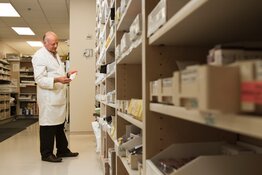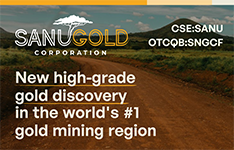Clinical-stage biotechnology company Coya Therapeutics Inc. (COYA:NASDAQ) announced its regulatory T cell-derived exosome (Treg exosome) program is set to enter Good Manufacturing Production (GMP) late this year, paving the way for an initial clinical study.
"Coya remains on track to initiate larger-scale clinical batch production in the fourth quarter of 2025, a key milestone in the transition toward first-in-human trials," wrote D. Boral Analyst Jason Kolbert in an updated research note on March 27. "The progress made to date underscores the company’s commitment to expanding its Treg-based therapeutic portfolio and positions the exosome platform as a potential breakthrough in the treatment of neuroinflammatory disorders."
Coya's Treg exosomes are intended to treat systemic and neurodegenerative diseases driven by chronic inflammation. Sustained inflammatory responses driven by dysfunctional immune regulation is a hallmark of serious autoimmune and neurodegenerative diseases, the company said.
Coya Chief Medical Officer Fred Grossman said in a release, "Our Treg-focused pipeline continues its advancement with the goal of manufacturing an allogeneic (off the shelf) specific modality that has the potential to be a first-in-class disease-modifying treatment for devastating neurodegenerative diseases of high unmet need. This approach complements and adds to our pipeline of therapies, including COYA-302, that aim to enhance Tregs and suppress neuroinflammation to slow progression in several neurodegenerative diseases."
Treg Exosomes Show 'Promising Results'
Coya's said its previous research demonstrated that ex vivo expanded Treg exosomes express key immunoregulatory markers and effectively suppress pro-inflammatory responses in vitro.
Treg exosomes are highly suppressive on pro-inflammatory macrophages and responder T cells, Coya said. Additionally, Treg exosomes have advantages over Tregs in that they are taken up by myeloid cells that drive disease progression, and they are resistant to conversion to a non-suppressive phenotype in the deleterious inflammatory environment commonly observed in certain systemic and neurodegenerative diseases, since they are not cells.
"Consistent with the results of in vitro experiments, in a well-established mouse model of neurodegeneration, intranasal administration of these Treg exosomes has shown promising results, including slowing disease progression, increasing survival, and modulating inflammation within the CNS," the company said in the release.
The company successfully manufactured initial engineering batches using expanded Tregs from healthy donors in the first quarter of this year.
Kolbert with D. Boral rated the stock a Buy with a US$18 per share price target, a more than 175% premium over the stock's price when he wrote the note.
The company said the next step is running additional manufacturing runs to ensure the reproducibility of the process before initiating GMP manufacturing.
"We believe Treg exosomes are complementary to and will provide accretive value to our biologics platform," said Chief Executive Officer Arun Swaminathan. "Thanks to our partnership with Dr. Stanley Appel and the Johnson Center, the program is being advanced without impact to our cash runway."
The company's progress to date underscores its commitment to expanding its Treg-based therapeutic portfolio and "positions the exosome platform as a potential breakthrough in the treatment of neuroinflammatory disorders," Kolbert with D. Boral wrote in his research note. Kolbert rated the stock a Buy with a US$18 per share price target, a more than 175% premium over the stock's price when he wrote the note.
"Coya expects multiple catalysts in 2025, including the submission of nonclinical data supporting its planned COYA-302 Phase 2b trial in ALS, potential milestone payments from Dr. Reddy's upon trial initiation, and key data readouts across Alzheimer's and Frontotemporal Dementia studies," Kolbert noted. "With a strengthened financial foundation and a robust clinical pipeline, Coya remains well-positioned to advance its neuroinflammation-targeted therapies and drive shareholder value in the year ahead."
Market for Treatment to See Steady Increase
According to the American Brain Foundation, brain disease is a global issue with more than 1 in 3 people around the world affected by neurological conditions, making it "the leading cause of illness and disability worldwide," the foundation said.
Based on 2021 data from the Global Burden of Disease, Injuries, and Risk Factor Study (GBD), the findings indicate that the overall amount of disability, illness, and premature death (known as disability-adjusted life years, DALYs) caused by neurological conditions has increased by 18% since 1990.
The 10 neurological conditions with the greatest DALYs were stroke, neonatal encephalopathy (neurological dysfunction in an infant at or around delivery), migraine, Alzheimer’s disease and other dementias, diabetic neuropathy (nerve damage as a symptom of diabetes), meningitis, epilepsy, neurological complications due to preterm birth, autism spectrum disorder, and nervous system cancer.
The neurodegenerative disease market size is estimated at US$59.06 billion in 2025, and is expected to reach US$83.37 billion by 2030, at a compound annual growth rate (CAGR) of 7.14% during the forecast period (2025-2030), Mordor Intelligence said.
 Streetwise Ownership Overview*
Streetwise Ownership Overview*
Coya Therapeutics Inc. (COYA:NASDAQ)
"The key growth determinants of the market include the increasing number of neurological disorders, growing awareness globally, and a strong lineup of products for treating neurodegenerative diseases," researchers said. "As the global population grows and people live longer on average, more people are experiencing neurological disorders."
Around 6.2 million Americans had Alzheimer's disease as of June 2022, according to data from the National Institute of Environmental Health Sciences, Mordor reported.
"A study published in the Lancet Journal in March 2024 showed that neurological disorders contribute to 3.4 billion disability-adjusted life-years (DALYs) worldwide," Mordor said. "This high burden of neurological disorders is anticipated to increase the demand for treatments and effective methods, driving growth in the neurodegenerative disease market."
Ownership and Share Structure
According to Refinitiv, about 1% of the company is owned by insiders and management, while institutions own 27% and strategic entities own 6%. The rest is retail.
Top shareholders include Greenlight Capital Inc. with 9.84%, Bertex LLC with 5.62%, AIGH Capital Management LLC with 5.33%, The Vanguard Group Inc. with 5.03%, and Worth Venture Partners LLC with 1.85%.
Its market cap is US$115.24 million with 16.72 million shares outstanding. It trades in 52-week range of US$4.75 and US$10.24.
| Want to be the first to know about interesting Biotechnology / Pharmaceuticals investment ideas? Sign up to receive the FREE Streetwise Reports' newsletter. | Subscribe |
Important Disclosures:
- Steve Sobek wrote this article for Streetwise Reports LLC and provides services to Streetwise Reports as an employee.
- This article does not constitute investment advice and is not a solicitation for any investment. Streetwise Reports does not render general or specific investment advice and the information on Streetwise Reports should not be considered a recommendation to buy or sell any security. Each reader is encouraged to consult with his or her personal financial adviser and perform their own comprehensive investment research. By opening this page, each reader accepts and agrees to Streetwise Reports' terms of use and full legal disclaimer. Streetwise Reports does not endorse or recommend the business, products, services or securities of any company.
- This article does not constitute medical advice. Officers, employees and contributors to Streetwise Reports are not licensed medical professionals. Readers should always contact their healthcare professionals for medical advice.
For additional disclosures, please click here.









































